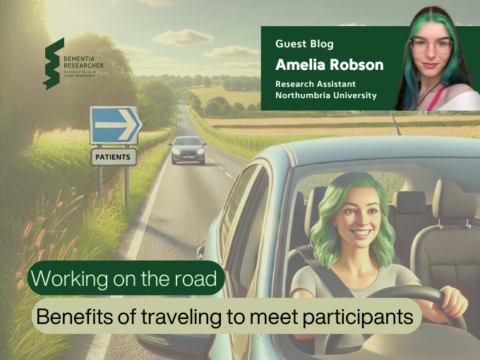The term “leaky pipeline” always conjures some very visual imagery in my head. Specifically, I see a bunch of faceless senior academics looking at a hole in the road where a fountain of water is bursting out of a pipe, so high-pressured it almost looks comical in its fountain shape. Everyone is looking around, with a too many cooks/bystander effect situation going on, with everyone knowing things need to change, but either not knowing where to start, or expecting other people to do so.
Let’s start at the beginning. The hierarchy of academia follows a pathway structure, which is checkpointed at its earlier stages by requirements for degree acquisition, and at its later stages by a complex interplay of published papers and various other metrics of career prestige. It is in this postdoctoral (and onwards) stage that the leaking of the leaky pipeline gets particularly bad. The ‘leaky pipeline’ is terminology that is often used within the academic context to highlight and attempt to explain the challenges that disproportionately affect certain groups of people for various reasons and leads to those individuals leaving academia. It is a useful and visual tool that can help understanding of an expansive world, but it is predominantly conceptualised around cisgender women and attempts to retain them within scientific fields and requires updating or modifications to be more reflective of other minority groups.
A huge flaw of the leaky pipeline can be evidenced by using its own imagery against itself. Traditionally, a pipeline would carry water, an incredibly uniform molecule and a terrible analogy for the richness and uniqueness of experience of individuals in academia. It’s simply too rigid a metaphor, and one which isn’t really complete. Holes of different sizes requiring different fixing approaches or liquids of different viscosity complicates a metaphor that people like to use and is avoided for that reason. But, the only way to fix the leaky pipeline is to use diverse approaches and address all of these different leaks in tailor-made ways.
I wanted to investigate where queer identity sits within the leaky pipeline metaphor. Are we getting somewhere, or are we just sticking a plaster over the problem(s)?
This is going to be one of my blogs that has a hefty amount of references, and whilst this may seem like overkill, it is something I do naturally when writing broadly about queer identity (rather than with a focus on my personal queer identity). In all honesty, this is to do with the feeling of discomfort that comes from putting myself so transparently out there, and hopefully also provides enough of a justified argument for those of you who are sceptical about the topic to consider that there may be some truth in it.
The postdoc stage, which I currently inhabit, is the prime time for the collision of our ambitions in the workplace with our own personal life ambitions, and therefore also the prime time for many of us to make a swift exit [1]. One of the key reasons for this is the assumed (sometimes correctly) desire for motherhood or parenthood combined with the brutal publish-or-perish nature of academia that doesn’t slow down or stop to accommodate pregnancy or adoption in the way that it should. Women are also credited less than men in scientific fields [2], in a manner that is shown to be systemic, with unacknowledged authorship and ignored contributions – Rosalind Franklin, anyone? Compared to their male counterparts, they are also more likely to prioritise a work-life balance [3] and male postdocs are twice as likely than their female counterparts to expect a partner to make sacrifices in their career to facilitate their own progression [1]. Despite all this, the language around the metaphor also dismisses the personal agency of the woman, by making it into something passive, thereby also placing some guilt onto the woman (this is also true of any group ‘leaking’ from said pipeline, not just women).

“Traditionally, a pipeline would carry water, an incredibly uniform molecule and a terrible analogy for the richness and uniqueness of experience of individuals in academia.”
We know that diversity of scientific groups is fantastic for their success. Diversity of opinion provides different perspectives, knowledge bases, and problem-solving approaches. Simply put, diverse teams make us all better scientists that produce better work [4]. A far less considered aspect of the pipeline is the experience of queer researchers and why they may leak out. At this point, I want to loudly acknowledge that this is only one of the many facets of personal identity that need to be considered and currently aren’t, but it is the one on which I will focus, given that this is where my own lived experience lies.
The underlying tone of the metaphor is one that is heterosexist and thereby reinforces traditional gender roles [5, 6]. Coupled with a pressure to remain ‘closeted’, and many scientists being generally unaware of the challenges faced by this group, their inclusion in the pipeline has thus far not been a priority. Anecdotally, it has been posited to me before that “if we haven’t got retention right for cis women, how can we be expected to get it right for anyone else?” The sceptic in me thinks many people in academia probably think this way, but that’s just not good enough a rationale. Overarchingly, we want to retain high quality scientists. That’s it. Irrespective of how these scientists identify or differ from the stereotype of what a scientist is, and we should have been including everyone in a workable metaphor a long time ago.
I’ve heard arguments again and again that this is irrelevant to scientific research. Even just yesterday (as I write this), I sat in a meeting for a post-conference discussion, for a conference I did not attend but was involved in the organisational side from the perspective of EDI. There was a suggestion box there, which had comments suggesting that we remove any mention of EDI because it “isn’t related to the science at hand”. Prior work has conceptualised this around the ideas of depoliticization and meritocracy within the frame of academic culture and social justice within engineering [7]. The belief of depoliticization is that such ‘social’ and ‘political’ issues are either tangential or irrelevant to the work at hand, and the idea of meritocracy posits that hard work and talent are rewarded. Except, that’s not true, and it requires either ignorance, a lot of cognitive dissonance, or a truly perfect society to believe it to be so. When a workplace functions under these beliefs or perceptions, the hostile experiences of queer individuals that can occur may be considered to be isolated, and not symptomatic of systemic issues, and resultantly overlooked [8, 9].
In attempts to deal with such hostility, queer people may see need to have a distinct work and personal life to protect themselves [10, 11]. This is something queer people do often, particularly before they ‘come out’, in order to protect themselves. A desire to live one singular life where all facets of their identity are accepted is understandable, as is leaving academia so that they don’t have to deal with the related exhaustion and emotionality associated with that life. Perhaps this also provides explanation for findings such as that of Hughes [12], who showed that students who identified as heterosexual were 10% more likely to remain in their STEM degree by its fourth year, after controlling for various factors which may have also influenced retention. Additionally, it has been shown that transgender and gender non-conforming individuals continue their degrees at a rate of around 10% lower than their cisgender counterparts [13]. Clearly, this is pervasive at all stages of higher education, but ignoring it is perpetuated by the system under which we all work.
It has also been suggested that LGBTQ people are 17-21% less represented within STEM that would be expected due to social prevalence of LGBTQ identities [14]. Additionally, sexual minority males drop out of STEM degrees at a rate higher than all women do [12]. A study which looked at sample data from 21 societies for STEM professionals found that LGBTQ STEM professionals were more likely to be harassed, professionally devalued, and experience limitations on their careers, and were ultimately more likely to leave STEM, highlighting a clear axis of inequality [15]. Sometimes data like this isn’t even collected, and thereby cannot inform the leaky pipeline narrative, or policy related to it. Additionally, training for faculty and staff members, at least in my UK-centric experience, is minimal. One online training programme and subsequent test, mandatory for all staff (as it should be), but easy to forget about after you’ve done it if the work isn’t done by your academic workplace to keep diversity and inclusion at the forefront of everyone’s minds. I’m lucky, my boss is great in this regard, but the same cannot be said for every professor.
I have spoken before about how I think if I do leave, it will be due to a lack of clear representation of queer female or non-binary scientists in my field. Indeed, retention of STEM students has shown to be improved by mentoring and faculty support, with this particularly important for those who are queer [16]. However, the risks and concerns that queer people experience at earlier stages of academia are also felt by those who identify similarly in senior positions, and their capacity to provide mentorship is complicated by this [17]. Being open and visible is something that is risky and laborious. Trust me, I know first-hand how this goes, and I still can’t shake the feeling of fear that comes from writing each and every one of these blogs, the panic that this will be the time someone reacts negatively about something so close to my own identity. But I do it because I’m stubborn and it is important. Mainly because I’m stubborn – the importance is irrefutable as far as I am concerned, but if I didn’t have my stubbornness I think I would have stopped being able to be open and loud about equity and diversity a long time ago due to the sheer exhaustion of the labour involved.
In acknowledgement of these issues with representation, I want to take this opportunity to make you aware of the website 500 Queer Scientists (https://500queerscientists.com/) and a Pride Month article by the journal Cell [18], which features some researchers from 500 Queer Scientists. This is a campaign which focuses on the visibility of LGBTQ+ individuals and allies in the world of STEM (I am on there!).
I recognise, too, that I might (definitely) have some biases here, as someone who is, demographically, almost destined to leak out of that leaky pipe, one way or another. I am female, of a classic age for considering having children, queer, and outspoken about the things I feel are unjust in the academic world, which is like a slippery slope where the deeper I dig, the more I find out. Nevertheless, the factors which contribute to the leaky pipeline for LGBTQIA+ individuals are complex and under-researched, and queer identities are just one facet of diversity which needs to be included. If we can’t get these issues addressed at the early stages, how can we expect to address them for postdocs and onwards? Even as it stands now, my perception of the leaky pipeline is one which has an issue with a lack of attempts to combat these issues upstream of where they occur – perhaps this is why we are focused a little too much on how we fix it, and a little too little on how we prevent it. Maybe, just maybe, it is time we abandon the leaky pipeline altogether, in favour of something that acknowledges us all for the complex human beings that we are.
- Martinez, E.D., Botos, J., Dohoney, K.M., Geiman, T.M., Kolla, S.S., Olivera, A., Qiu, Y., Rayasam, G.V., Stavreva, D.A. and Cohen‐Fix, O., 2007. Falling off the academic bandwagon: Women are more likely to quit at the postdoc to principal investigator transition. EMBO reports, 8(11), pp.977-981.
- Ross, M.B., Glennon, B.M., Murciano-Goroff, R., Berkes, E.G., Weinberg, B.A. and Lane, J.I., 2022. Women are credited less in science than men. Nature, 608(7921), pp.135-145.
- Sheltzer, J.M. and Smith, J.C., 2014. Elite male faculty in the life sciences employ fewer women. Proceedings of the National Academy of Sciences, 111(28), pp.10107-10112.
- Galinsky, A.D., Todd, A.R., Homan, A.C., Phillips, K.W., Apfelbaum, E.P., Sasaki, S.J., Richeson, J.A., Olayon, J.B. and Maddux, W.W., 2015. Maximizing the gains and minimizing the pains of diversity: A policy perspective. Perspectives on Psychological Science, 10(6), pp.742-748.
- Seymour, E., 1999. The role of socialization in shaping the career‐related choices of undergraduate women in science, mathematics, and engineering majors. Annals of the New York Academy of Sciences, 869(1), pp.118-126.
- Atherton, T.J., Barthelemy, R.S., Deconinck, W., Falk, M.L., Garmon, S., Long, E., Plisch, M., Simmons, E.H. and Reeves, K., 2016. LGBT climate in physics: Building an inclusive community. American Physical Society, College Park, MD.
- Cech, E.A., 2013. The (mis) framing of social justice: Why ideologies of depoliticization and meritocracy hinder engineers’ ability to think about social injustices. Engineering education for social justice: Critical explorations and opportunities, pp.67-84.
- Cech, E.A. and Waidzunas, T.J., 2011. Navigating the heteronormativity of engineering: The experiences of lesbian, gay, and bisexual students. Engineering Studies, 3(1), pp.1-24.
- Stout, J.G. and Wright, H.M., 2016. Lesbian, gay, bisexual, transgender, and queer students’ sense of belonging in computing: An intersectional approach. Computing in Science & Engineering, 18(3), pp.24-30.
- Orlov, J.M. and Allen, K.R., 2014. Being who I am: Effective teaching, learning, student support, and societal change through LGBQ faculty freedom. Journal of Homosexuality, 61(7), pp.1025-1052.
- Chrobot-Mason, D., Button, S.B. and DiClementi, J.D., 2001. Sexual identity management strategies: An exploration of antecedents and consequences. Sex roles, 45, pp.321-336.
- Hughes, B.E., 2018. Coming out in STEM: Factors affecting retention of sexual minority STEM students. Science advances, 4(3), p.eaao6373.
- Maloy, J., Kwapisz, M.B. and Hughes, B.E., 2022. Factors influencing retention of transgender and gender nonconforming students in undergraduate STEM majors. CBE—Life Sciences Education, 21(1), p.ar13.
- Freeman, J., 2018. LGBTQ scientists are still left out. https://www.nature.com/articles/d41586-018-05587-y
- Cech, E.A. and Waidzunas, T.J., 2021. Systemic inequalities for LGBTQ professionals in STEM. Science advances, 7(3), p.eabe0933.
- Russell, G.M. and Horne, S.G., 2009. Finding equilibrium: Mentoring, sexual orientation, and gender identity. Professional Psychology: Research and Practice, 40(2), p.194.
- Patridge, E.V., Barthelemy, R. and Rankin, S.R., 2014. Factors impacting the academic climate for LGBQ STEM faculty. Journal of Women and Minorities in Science and Engineering, 20(1).
- Armada-Moreira, A., Cizauskas, C., Fleury, G., Forslund, S.K., Guthman, E.M., Hanafiah, A., Hope, J.M., Jayasinghe, I., McSweeney, D. and Young, I.D., 2021. STEM Pride: Perspectives from transgender, nonbinary, and genderqueer scientists. Cell, 184(13), pp.3352-3355.

Jodi Watt
Author
Dr Jodi Watt is a Postdoctoral Researcher at University of Glasgow. Jodi’s academic interests are in both healthy ageing and neurodegenerative diseases of older age, and they are currently working on drug repurposing for dementia. Previously they worked on understanding structural, metabolic and physiological brain changes with age, as measured using magnetic resonance imaging. As a queer and neurodiverse person, Jodi is also incredibly interested in improving diversity and inclusion practices both within and outside of the academic context.

 Print This Post
Print This Post





